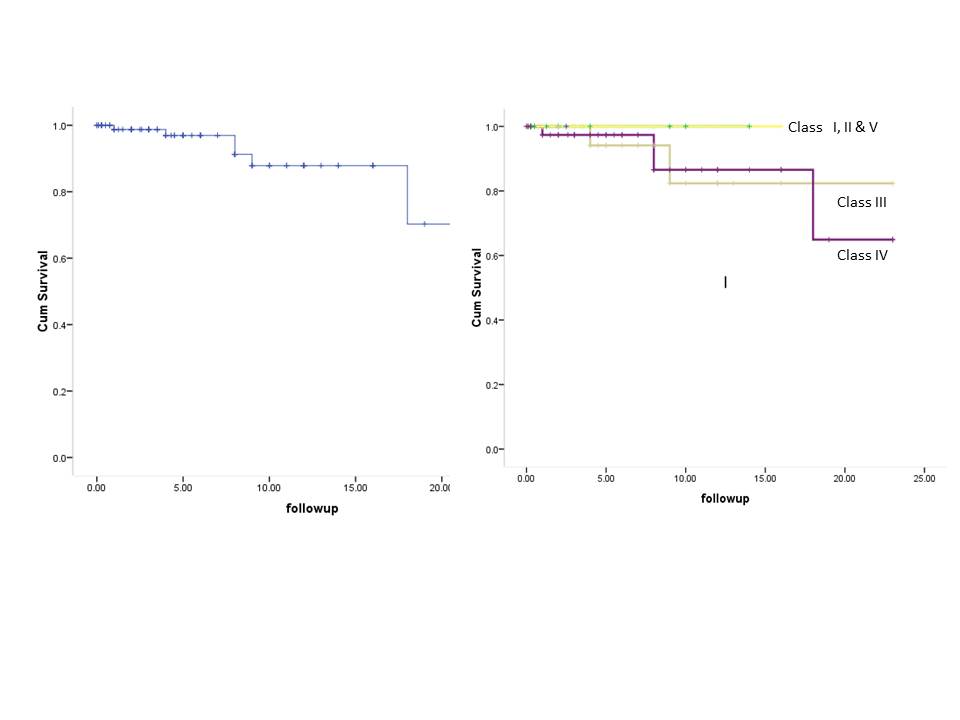Session Information
Title: Systemic Lupus Erythematosus - Clinical Aspects I - Renal, Malignancy, Cardiovascular Disease
Session Type: Abstract Submissions (ACR)
Background/Purpose: Childhood SLE has a higher prevalence of lupus nephritis (LN) as well as proliferative LN than adults. There is ethnic variation in response to treatment as well as outcome of LN. There is limited data on long-term outcome of Childhood LN from Indian subcontinent.
Methods: Retrospective analysis of case records of patients of SLE over last 24 years was done. The inclusion criteria were: fulfillment of ACR 1987 criteria for diagnosis, age of onset less than 18 years, biopsy proven lupus nephritis. Data on clinical features, treatment, outcome, complications and mortality was collected.
Results: Among 1015 patients with SLE there were 206 patients with childhood onset SLE. Among these 206 patients 145 had some evidence of renal disease of which 93 underwent biopsy (2 were inadequate) thus data on 91 patients was analyzed.
Among these 91 children (82 girls), the mean age at onset was 13.7+ 3.5 years and the median duration of disease at presentation was 1 year. LN was present at onset in 76 patients.
Proteinuria was present in 92% (18% nephrotic range), hematuria in 75%, leucocyturia in 75% and 11% had cellular casts. 19 patients had raised serum creatinine at presentation. The distribution of histological classes was (class I: 1, class II:13 , Class III: 24, Class IV: 41, Class V: 12 patients). Eight patients had associated membranous nephropathy along with proliferative GN. Out of these 63 received Cyclophosphamide and 5 received MMF as induction therapy.
The median follow up was 8 (0.1-23) years. Only 12 had less than 1 year follow up and 22 patients had more than 10 year follow up. At the last follow up 58 were in complete renal remission, 19 had partial remission, 5 had active renal disease, 3 had ESRD and 6 had died (one each due to staph sepsis, pancreatitis, disseminated TB, stroke, ESRD, unknown). 31 patients had infection of which 14 required hospitalization. 44 patients had major disease flare and 15 had minor flare.
The 5 year actuarial survival was 95% and the 10 year survival was 88%. Histological class had no effect on survival even though all deaths occurred in patients with proliferative LN. There was no effect of gender or age of onset.
Conclusion: Proliferative GN is the most common renal pathology. Almost two third patients are in complete remission at a median follow up of 7 years. 10% of children either died or had ESRD. The outcome is comparable to the Western data however the infection rate is higher.
Disclosure:
P. Srivastava,
None;
B. Abujam,
None;
R. Misra,
None;
A. Lawrence,
None;
V. Agarwal,
None;
A. Aggarwal,
None.
« Back to 2013 ACR/ARHP Annual Meeting
ACR Meeting Abstracts - https://acrabstracts.org/abstract/childhood-lupus-nephritis-long-term-outcome-of-91biopsy-proven-cases-from-india/

